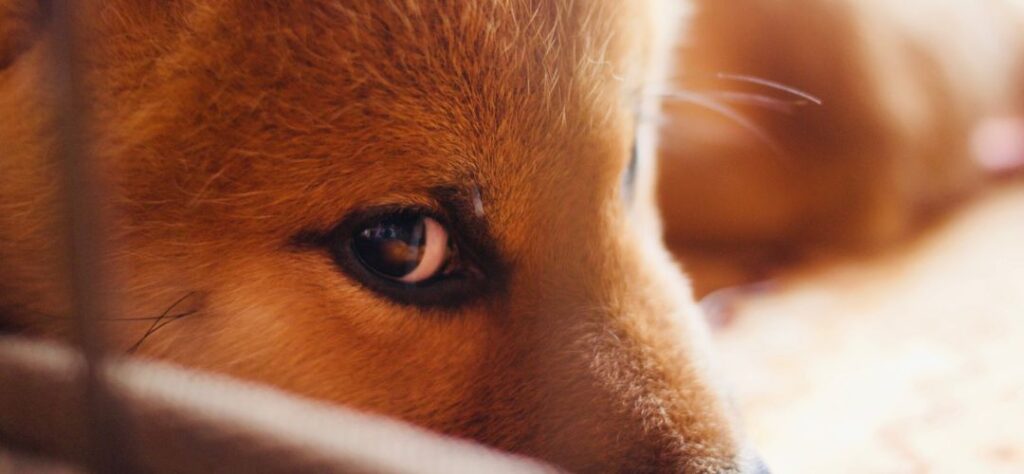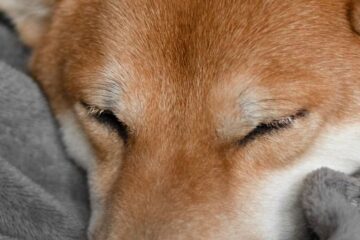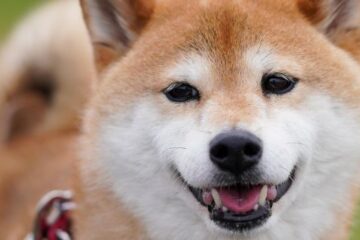It’s a question as old as time, but one that is often overlooked. The answer may surprise you! Shibas, those gallant little dogs with the fox-like face and luxurious double coat of fur, are surprisingly more cautious than most breeds. From thunderstorms to loud noises, they can be fearful of things that we humans take for granted.
It’s important to understand that Shibas aren’t inherently afraid of everything. In fact, their strong loyalty and fearless nature makes them an ideal family dog. It’s not always easy to tell when they’re feeling scared, so it’s important to be aware of the signs. Common signs include cowering, trembling, hiding, or even barking aggressively.
It’s also important to remember that some Shibas may be more fearful than others. The best way to help them feel safe and secure is by providing a supportive environment. Make sure your Shiba has plenty of hiding spots, toys, and treats on hand in case they need it. Additionally, try to avoid exposing them to situations or places that could trigger their fear-response, such as fireworks or large crowds.
When it comes to Shibas, patience and understanding will go a long way in helping them feel more comfortable and secure. With time and plenty of love, you’ll be able to see the strong-willed side of your Shiba come out – sure to put a smile on your face!

Do Shiba Inu have anxiety?
It’s important to note that Shibas can suffer from anxiety just like any other breed. Anxiety in dogs is often caused by fear or insecurity, and it can manifest itself in various forms. If your Shiba is exhibiting signs of anxiety, such as pacing, panting, trembling or excessive vocalization – be sure to take them to the vet for a check-up.
In some cases, anxiety in Shibas can be caused by a lack of proper socialization. Shibas are very independent dogs, so it’s important to get them used to different sights and sounds from an early age. Expose them to a variety of experiences when they’re young and introduce them to new people or animals often – this will help them become more familiar and comfortable in different environments.
If your Shiba already suffers from anxiety, there are things you can do to help reduce their stress levels. Make sure to provide plenty of exercise and mental stimulation throughout the day – this will help them stay active so they don’t have time to worry. Additionally, providing them with a safe space that they can retreat to when feeling anxious may be helpful. This space should be a quiet, comfortable area where they won’t be disturbed too much.
Lastly, it’s important to remain calm and patient with your Shiba. Avoid punishing them when they exhibit signs of anxiety; instead, try to distract or comfort them until the feelings pass. Additionally, if the anxiety is severe, you may want to consider talking to a veterinarian about potential medication or behavior modification.
Are Shiba Inu sensitive?
Yes, some Shiba Inu can be quite sensitive. The breed as a whole tends to have an independent streak and is known for its stubbornness. However, when it comes to their owners and people they trust, Shibas can be quite sensitive to moods and emotions. This makes them highly intuitive animals who are able to read the atmosphere around them very well.
Shibas are also sensitive to changes in their environment. They don’t like sudden transitions or surprises, and need time to adjust whenever there is a shakeup. For this reason, it’s important to ensure that any new family members or changes to your routine are introduced gradually so they have time to adapt.
Overall, Shibas can be sensitive animals but they also demonstrate loyalty and affection towards those who treat them kindly. They require patience and consistency in order for their personalities to develop properly. As owners, it’s important to understand the breed temperament and provide them with plenty of love and understanding so that their sensitive nature doesn’t become a problem.
It’s also essential to take your Shiba for regular visits to the vet, as well as provide daily exercise and mental stimulation activities. This will help ensure they stay healthy and happy, while providing them the chance to interact with other animals and people in a positive way. By understanding their sensitive nature and providing them with plenty of love, you can ensure your Shiba will grow into a well-balanced companion.
At the end of the day, it’s important to remember that each dog is unique and will have different needs when it comes to their fear levels. By providing them with a safe and loving environment, you can help your Shiba overcome any anxieties they may have and become the best companion possible.
Shibas are unique animals that require patience, understanding and lots of love in order to thrive. With the right care and attention, these loyal companions can be an absolute joy to have by your side.
Why is my Shiba crying?
Shibas can be sensitive animals that often display an array of behaviors when they are anxious or upset. Crying is a common reaction for Shibas who feel uncertain in new situations or encounter loud noises. It’s important to understand why your Shiba might be crying in order to provide them with the best care possible.
It’s important to remember that each Shiba is unique and will have individual needs when it comes to their behavior. Common reasons for a Shiba’s crying could include fear of unfamiliar people or animals, distress from loud noises such as thunderstorms or fireworks, feeling overwhelmed by large crowds or new environments, and anxiety from being left alone.
In order to provide your Shiba with the best care possible, it’s important to be patient and understanding of their behavior. Comforting them when they are scared or upset can help them feel more secure and less anxious about their environment. Additionally, providing a variety of toys can help keep your dog entertained in situations that may cause them distress.
It’s also essential to create a safe and secure environment for your Shiba. This means providing them with plenty of exercise both in the form of walks and playtime, as well as giving them access to areas where they can retreat if needed. Additionally, providing lots of love and treats is an important way to show your Shiba that you care, as well as helping them feel more comfortable in their environment.
Do Shiba Inu have separation anxiety?
Shiba Inu can certainly experience separation anxiety, just like any other type of dog. Separation anxiety is a condition in which a dog exhibits extreme stress and distress when separated from their owner or caretaker. Signs that your Shiba may be experiencing separation anxiety can include howling and barking, destructive behaviors such as chewing on furniture or digging holes, pacing, panting, and toileting in the house.
In order to help your Shiba cope with separation anxiety, it’s important to create a consistent routine for them that they can depend on. This means making sure that their daily needs such as exercise, playtime, feeding times, and bathroom breaks are met at the same time each day. Additionally, it’s important to gradually build up the amount of time they spend alone and start off with shorter increments.
If you’re going out for an extended period of time, it’s also helpful to leave your Shiba some things that can keep them occupied such as chew toys or interactive puzzle games. When you return home, make sure to greet your dog calmly and avoid acting too excited as this can be overwhelming for them.
It’s also important to note that if your Shiba is exhibiting severe signs of separation anxiety, it may be beneficial to speak to a professional behaviorist who can provide tailored advice and solutions in order to improve the situation. With patience and understanding, your Shiba will soon learn how to feel more relaxed and secure when they are alone.
Conclusion | What are Shibas afraid of?
Shibas can experience separation anxiety just like other dogs, with symptoms including howling and barking, destructive behaviors, pacing, panting, and toileting in the house. To help them cope with this issue it is important to create a consistent routine for them that meets their daily needs such as exercise, playtime, feeding times, and bathroom breaks at the same time each day. When leaving for an extended period, it is helpful to leave them some toys or interactive puzzle games that can keep them occupied while you are away. Additionally, if the anxiety persists, speaking to a professional behaviorist may be beneficial as they can provide tailored advice and solutions. With patience and understanding your Shiba will learn how to feel more relaxed when alone.


